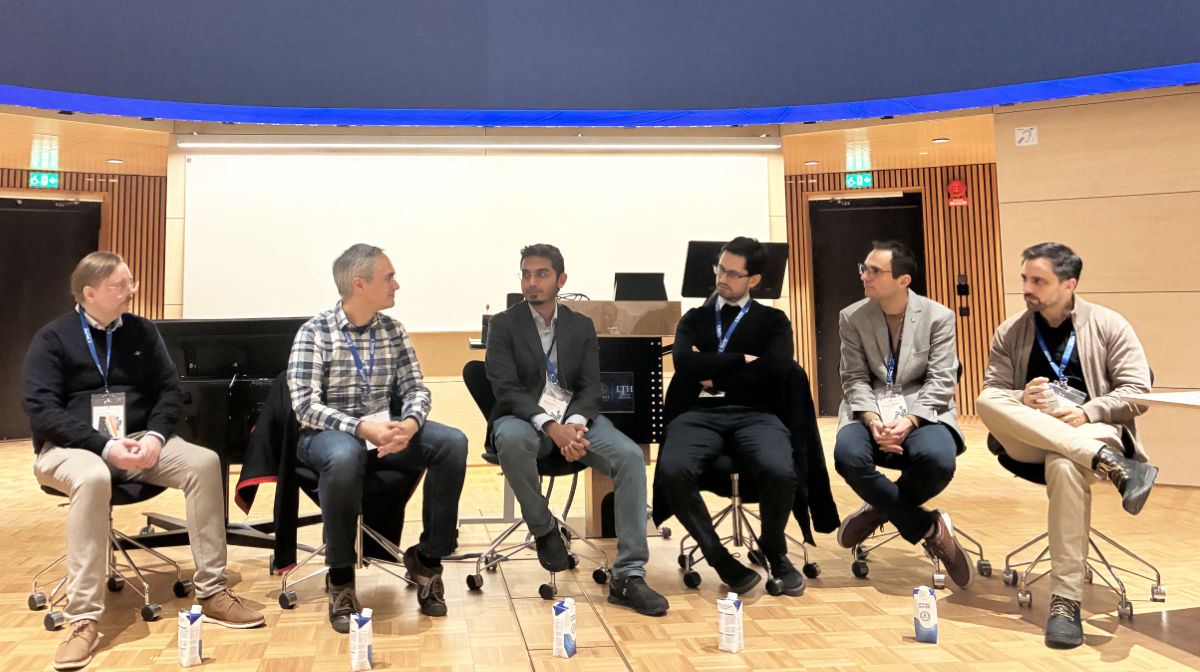
The ELLIIT focus period symposium on robot learning gathered roboticists from all over the world in Lund for three days of talks, panel discussions and networking. At the end of each symposium day, all the speakers of the day formed a panel that was moderated by a member of the scientific committee presenting that day. The panel discussion started off with key takeaways from each panelist’s talk.
– There were a lot of questions throughout the whole day, and not always time in the schedule, but these could then be handled in the panel discussion, which created important interaction, says Yiannis Karayiannidis, member of the organising committee.
Focus of the symposium has been on achievements, but also on the remaining questions:
– The panel discussions have been a good way to pick up on the open questions, the challenges we still need to do research on. Having speakers with different research directions creates a good environment for discussing, and shedding light on questions from different perspectives, says Björn Olofsson, member of the organising committee.
Being able to invite top researchers and leaders in their fields is one of the strengths of the focus period concept. Robot learning is a multidisciplinary field, and the broad range was reflected in the speakers’ topics over the three fully packed symposium days.
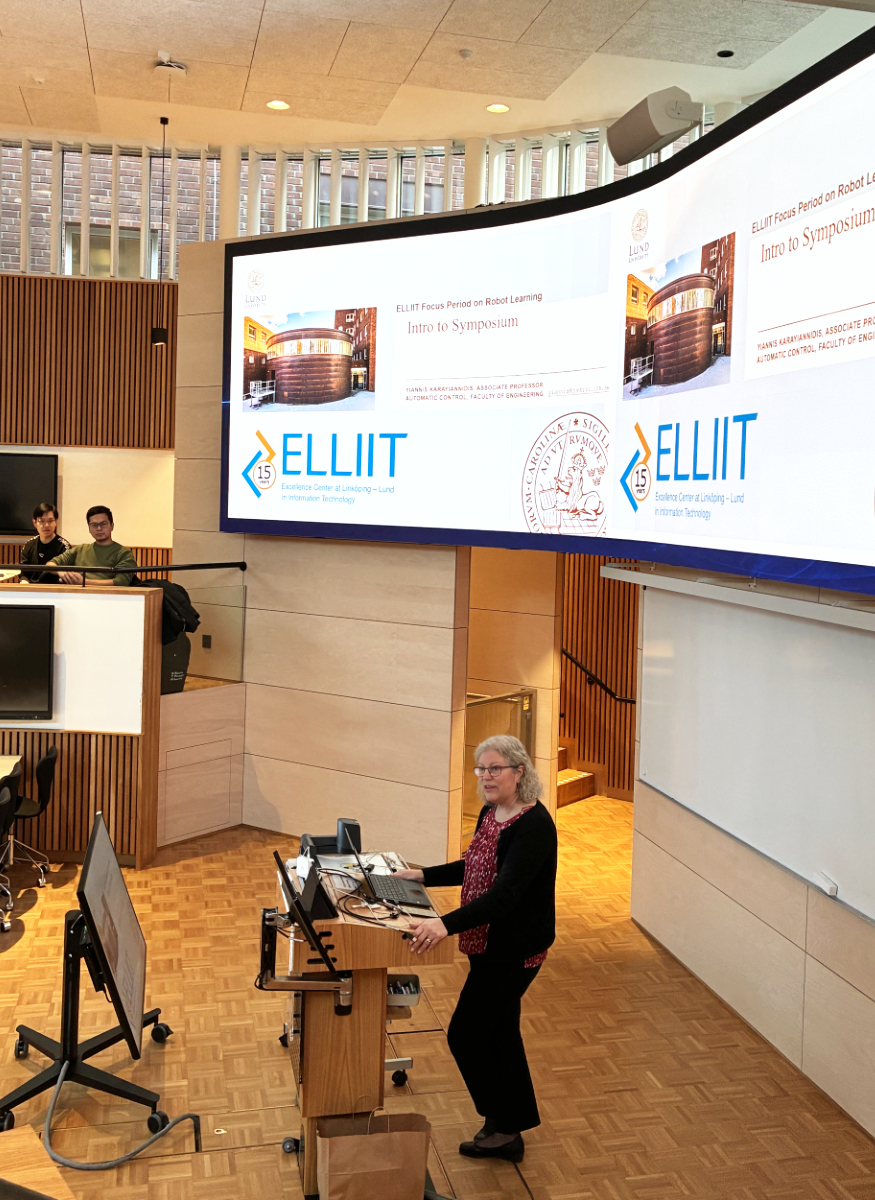
Deputy dean of Lund University Faculty of Engineering Margaret McNamee greeted the symposium attendees welcome to Lund.
Or as attendee Lund PhD student in automatic control Marko Guberina put it:
– I seldom get to meet roboticists, now I’m surrounded by them!
Marko Guberina also appreciated the panel discussion at the end of the days, describing how the discussions really can shift your perspectives on specific topics.
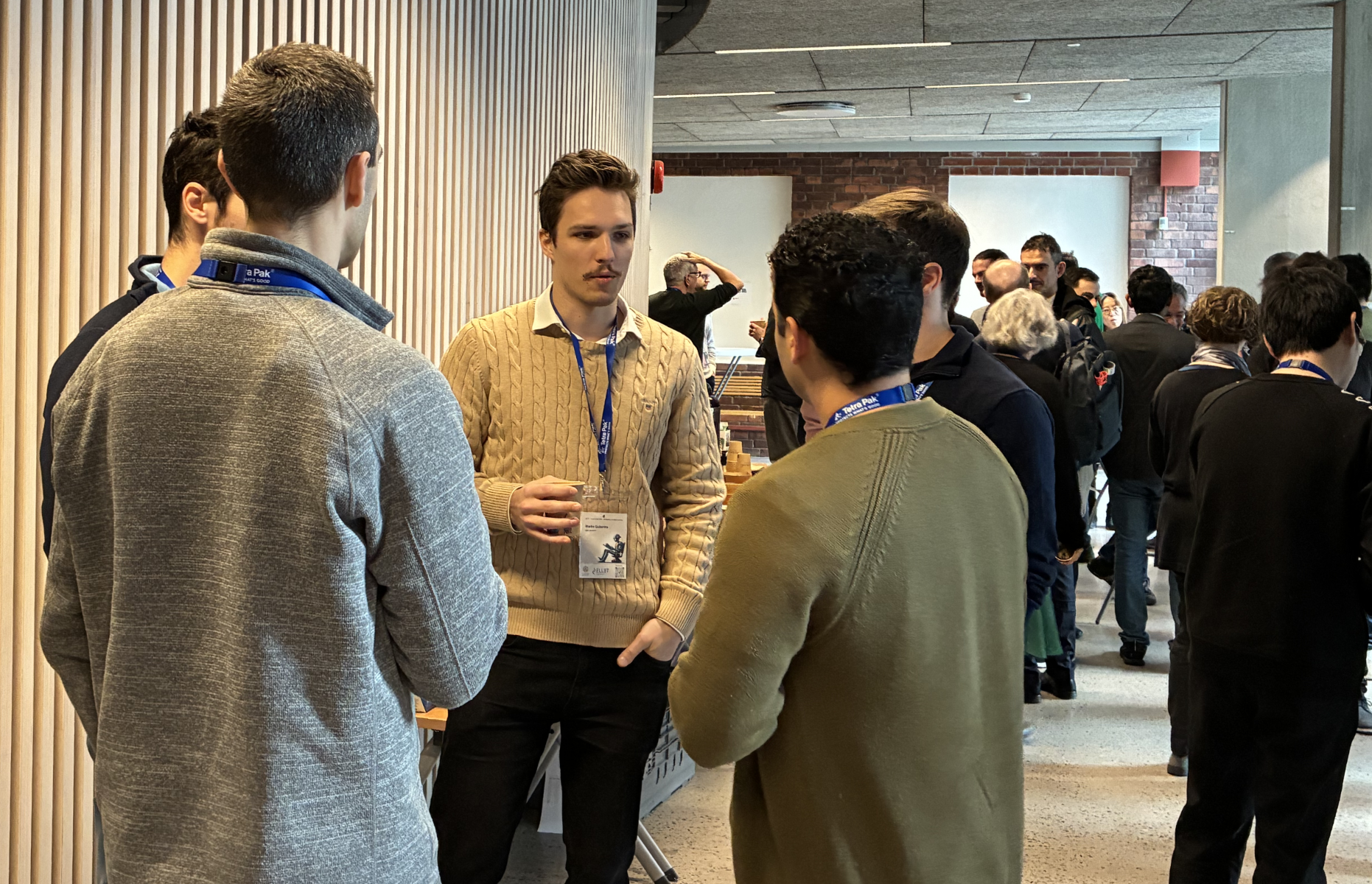
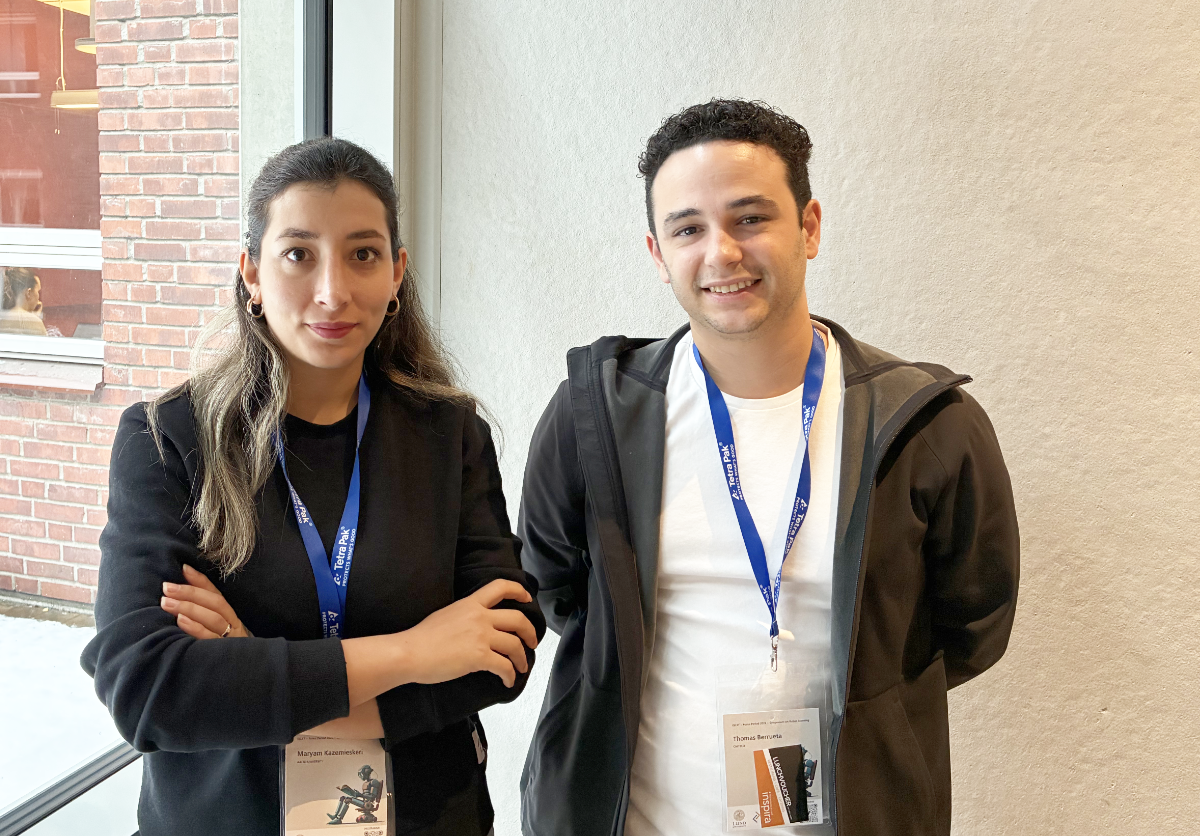
Marko Guberina on the first day of the symposium.
Visiting scholars Maryam Kasemieskeri, from Aalto University in Helsinki, Finland, and Thomas Berrueta, from Caltech, Pasadena.
End of visit
The ELLIIT focus period includes visiting scholars staying at the hosting faculty for three weeks, in two rounds, so for some of the visiting scholars the symposium is the end of the stay. For Maryam Kasemieskeri and Thomas Berrueta, the focus period has been a positive experience.
– The flexibility of the organization has been great, and the possibilities to meet and interact with PhD students and senior researchers here in Lund, says Thomas Berrueta.
As examples of outcomes of the focus period Thomas Berrueta lists the networking opportunities and gaining knowledge of where others in the field are focusing their research. Maryam Kasemieskeri’s research questions are not specifically in the scope of robot learning, yet the topics, community and the peer support of the group of visiting scholars have been rewarding.
– Giving a talk in the seminar series, and presenting and working with the visiting scholars group has been good practice, says Maryam Kasemieskeri.
The foremost take aways for both is the sense of community that quickly formed during the weeks of visit, and ease of interaction with visiting scholars, lab environments, and Lund faculty members.
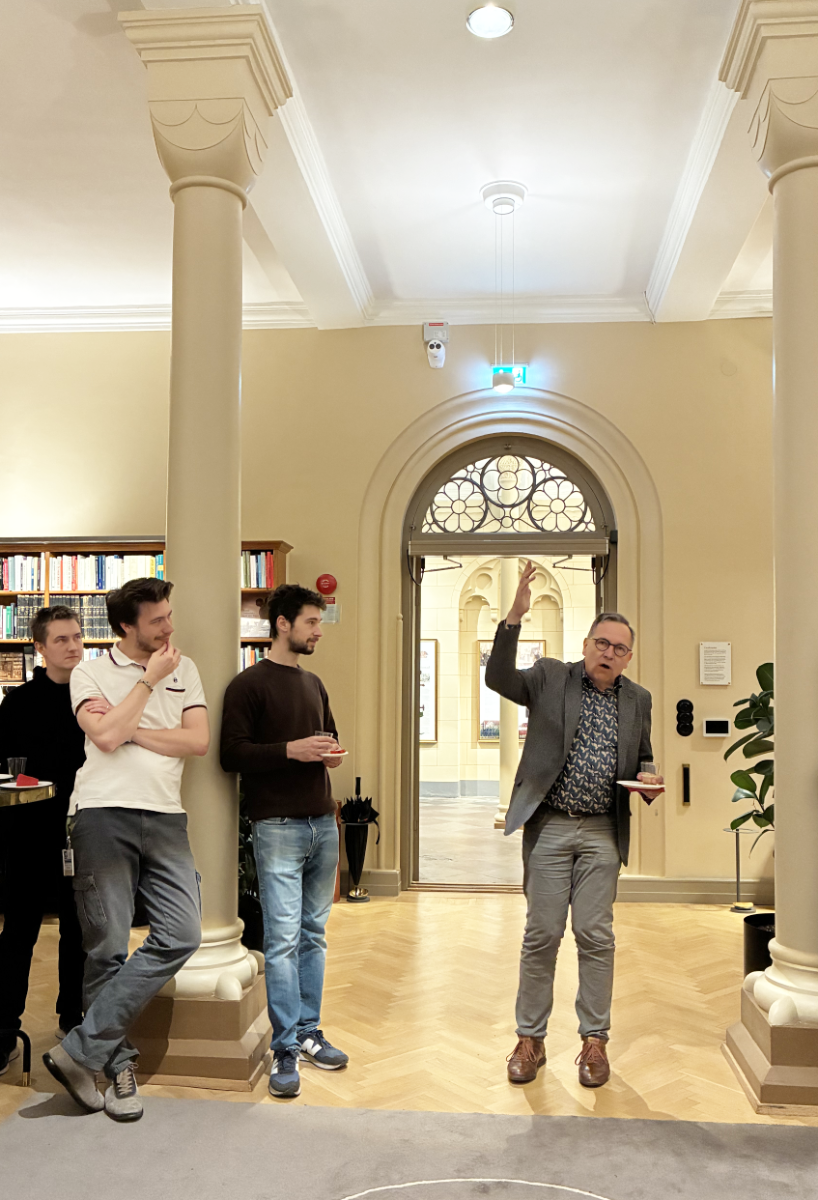
Pro vice-chancellor of Lund University Per Mickwitz told the story of the old university building at the welcome reception.
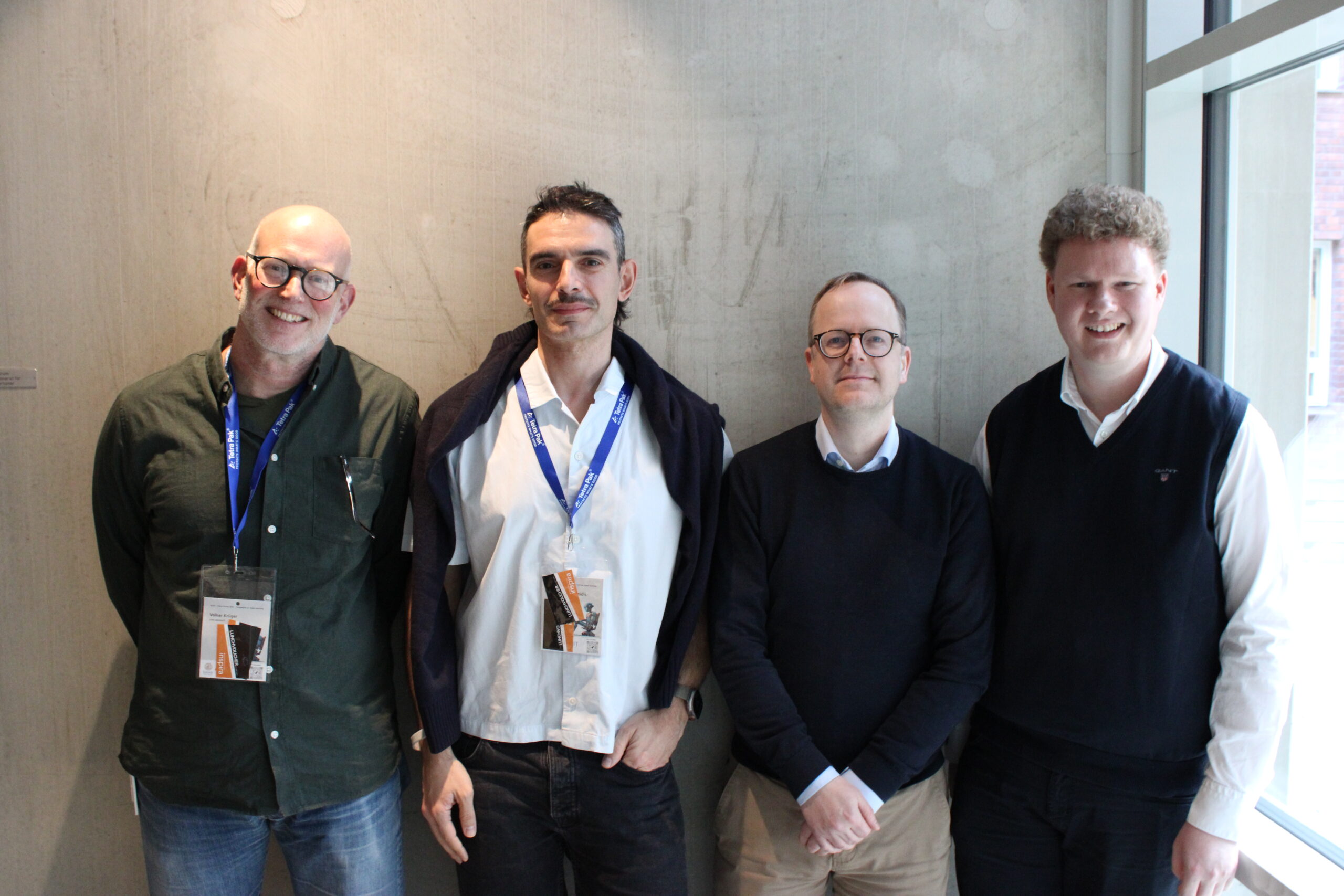
The organising committee of the ELLIIT focus period on robot learning, from left: Volker Krueger (LU), Yiannis Karayiannidis (LU), Erik Frisk (LiU) and Björn Olofsson (LU).
The ELLIIT Focus Period on Robot Learning is taking place November 3 – December 5, 2025 with a three day symposium November 18-20, 2025.
